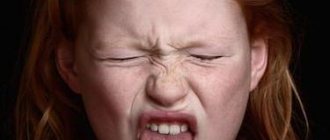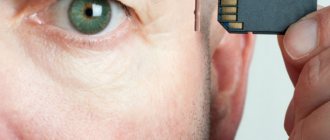- What it is?
- Causes
- Clinical picture
- Diagnostics
- Treatment
- Consequences
- Books
Every person at least once in his life got up from the table with a full stomach.
If this happens rarely and he can control his appetite at such moments (he simply allowed himself to relax and enjoy delicious dishes), then there is nothing terrible or pathological about it. An evening walk, an extra hour in the gym, a fasting day will not allow extra calories to be deposited on the body in unnecessary places. It’s a completely different matter if this happens unconsciously and every time - after another stress experience. This is compulsive overeating - an eating disorder, the main cause of which is negative emotions. Leads to excess weight, and in the absence of proper measures - to obesity.
INABILITY TO CONTROL YOURSELF IN COMPULSIVE OVEREating Disorder
One of the most striking symptoms of compulsive overeating disorder is that the person clearly cannot control their eating.
The episode of overeating itself is associated with consuming more food than necessary to feel full. Such people consume food even in the absence of hunger. They simply lose control of themselves when they see food. The time frame for each binge eating episode is two hours or more.
There are cases where people continue to eat food in large quantities throughout the day. Such people are often very sensitive to issues of weight maintenance. They may try their best to control their eating, but they often fail.
Etiology
Often, gluttony is a hyperphagic reaction to stress. The main difference between this disorder and anorexia or other eating disorders is the absence of taking emetics or laxatives, intense physical activity, or other actions aimed at eliminating the consequences of attacks.
Experts in the field of psychology and psychotherapy identify several groups of predisposing factors that contribute to the occurrence of compulsive overeating:
- biological;
- psychological;
- social.
The first category of provocateurs is represented by genetic predisposition.
Today, several genes are known whose mutation can cause the formation of the described disorder, namely:
- The GAD2 gene activates the production of gamma-aminobutyric acid in the brain, which, in turn, interacts with neuropeptide Y, which ultimately stimulates appetite.
- The Taq1A1 gene is responsible for low dopamine levels. People with a mutation of this gene make decisions more slowly and later experience satiety and pleasure from eating food.
- The FTO gene is responsible for a person’s tendency to be overweight and overeat.
Psychological reasons lie in the inability to cope with a particular emotion provoked by internal conflicts or the influence of external negative factors.
The main incentive to consume large amounts of food are emotions such as:
- fear and guilt;
- anxiety;
- own powerlessness;
- inability to change the situation.
This leads to the fact that psychogenic overeating in the vast majority of cases is diagnosed in people with low self-esteem.
Another important factor is social pressure. Today, the cult of slimness is widespread, and the absence of excess body weight among female representatives is considered the standard of beauty. This situation further aggravates the feeling of inferiority, guilt, and pushes people to eat large amounts of food to eliminate negative emotions.
The reasons for the formation of this disorder in children:
- conflicts in the family;
- problems with education;
- difficult relationships with adults;
- lack of sufficient emotional support;
- certain eating habits learned from an early age, for example, eating only fatty foods and sweets, using large plates, eating meals “for”;
- ADHD (Attention Deficit Hyperactivity Disorder) is a neurobehavioral developmental disorder that begins in childhood.
Difference between binge eating disorder and bulimia nervosa
At the very beginning, when the first cases of compulsive overeating were noted, this disease was associated with bulimia. However, in fact, compulsive overeating is one of the components of bulimia. The main similarity between the two diagnoses is the presence of overeating, but in other respects bulimia and compulsive overeating disorder are fundamentally different from each other.
Take, for example, two patients undergoing treatment. Patient A was diagnosed with binge eating disorder, and Patient B was diagnosed with bulimia nervosa. The behavior of both patients will have many similarities. Both will overeat, consuming more food than many people under the same conditions. Both patients will experience feelings of guilt or shame after eating and will try to hide their behavior. However, Patient B will still exhibit compensatory behavior after eating in order to prevent his weight gain.
He may vomit, abuse laxatives, or exercise excessively. Patient B will regularly have periods where he will restrict his caloric intake, cutting out certain foods to compensate later, ending up overeating for a few days and vomiting again.
Unlike patient B, patient A will not try to compensate for uneaten foods, but will simply subsequently suffer from negative experiences for a long time. Patient A will not exhibit compensatory behavior after eating, since weight is not so important to him.
How to cope with the problem of overeating and whether it needs to be treated
The answer to this question depends on what stage your problem is at. If you ate more than you should at the holiday table, and the next day you don’t feel guilty or crave junk food, then everything is not so scary, and you can cope with the unpleasant situation on your own. What to do after overeating in this case:
Move
Go for a walk, dance, clean your apartment - any physical activity will help you quickly get rid of unnecessary calories.
Drink water
Liquid accelerates metabolic processes in the body. Tea and coffee will not help here; you need the most ordinary clean water without gas. If you don’t have gastrointestinal problems, you can prepare detox water with cucumber, lemon and ginger. It will help get rid of toxins accumulated in your body after eating junk food.
Reduce calories
Try, at least for the period until the unpleasant symptoms pass, to slightly reduce the portions. Avoid eating heavy foods and opt for vegetables, low-fat broth, fish or poultry. Don't forget about consuming fermented milk products. They will help restore the intestinal microflora and have a beneficial effect on digestion.
What to do when overeating if episodes are repeated regularly and turn into a habit? Here you need to completely reconsider your diet and form a healthy attitude towards food.
Eat often
Ideally, every 2-3 hours in small portions. This way you will understand that this meal is not the last in your life, and the desire to overeat to the point of cramping in your stomach most likely will not arise.
Control your portion sizes
If you have an eating disorder, never put a lot of food on your plate, or place a whole package, jar or pan in front of you, in the hope that you will be able to stop in time and put away the rest for later. Most likely, you will eat every last crumb. Over time, you will learn to understand from your own feelings when to stop, but at the initial stage, portion size should be your strict limiter - only this, and not a piece more.
Serve the dishes
It has been proven that if food looks attractive, then you get much more pleasure from it. You don't have to buy a huge cake or a greasy hamburger to enjoy food. Even the simplest and healthiest food can be arranged and decorated in such a way that it will seem appetizing and tasty to you.
Don't bite
Sometimes it seems as if you haven’t eaten anything, but have eaten too much. Why is this happening? Everything is very simple. They licked the spoon, took a bite there, tasted this. The brain does not perceive this as a full meal, but the calories accumulate. Add main meals to these endless snacks and you are guaranteed to exceed your daily calorie intake.
Eat slowly
It is known that the feeling of fullness comes only 20 minutes after eating. So try not to rush. Imagine that you are in a restaurant. Place the cutlery in front of you, sit up straight and start eating. Eat in small bites, placing your fork, spoon or knife on the table each time you chew. Try to feel all the shades of taste. Only when there is no food left in your mouth, take the utensils again and continue eating.
If all measures do not bring results, it makes sense to seek help from a doctor. He will tell you how to get rid of overeating in your particular case and select the appropriate diet.
Author: Di&Di Corporation
ACUTE EMOTIONAL EXPERIENCE IN COMPULSIVE OVEREating Disorder
People who suffer from binge eating disorder experience intense emotional distress. Often, a storm of emotions arises in the soul of these food addicts, including feelings of guilt, disgust and grief that suddenly overwhelm them. Moreover, these feelings can arise regardless of his gender.
By eating too much food and feeling unable to control their binges, such people can fall into a vicious cycle of self-loathing. Some of them torment themselves with thoughts about how overeating affects their health, and ultimately begin to consider their behavior catastrophically dangerous.
They end up repeating the same emotional cycle, overeating more and more. People with binge eating disorder are so overwhelmed by their experiences that they feel hopeless and can easily become depressed.
Treatment of compulsive psychogenic overeating
Let's talk about how to cure compulsive overeating on your own. To begin with, you should soberly assess the situation and calculate how many times a day or week you are overcome by attacks of uncontrolled gluttony. If the number is not critical, less than twice a week, you can try treatment for compulsive overeating at home.
In this case, there is only one way out - self-control. Strict restriction of food volumes, monitoring of physical condition: feelings of hunger and comfort from the amount eaten. At the same time, it is important to realize the comfort is physical, and not moral. That is, you ate a plate of salad and physically feel full, but psychologically it seems that there is not enough food. It is important to differentiate these conditions.
How to stop compulsive overeating if you feel like you can't cope on your own? There are several ways, but the main 2 are psychotherapy and drug treatment.
Psychotherapy
A psychiatrist is consulted when biological causes of psychogenic overeating are excluded. The specialist selects treatment methods individually for each patient, depending on the degree of development of the deviation and emotional and psychological factors.
Modern psychiatry uses 3 main methods of treatment:
1. Family therapy.
During treatment, immediate family members who have influence on the patient are involved. Typically these are parents of minor children, spouses, or those who live with the patient.
2.Cognitive behavioral therapy.
This method is based on identifying the root cause of the eating disorder. Having found out what provoked compulsive overeating, the psychiatrist builds tactics to eliminate those very causes.
3.Dialectical behavior therapy.
This method is used in cases where the patient drowns out emotions with food. It is necessary to find alternative methods of dealing with stress that do not involve food.
Methods can be combined and used simultaneously to achieve better results. Also, specialists can use other methods of treatment, since the most popular and effective ones are named here.
EATING ALONE WITH COMPULSIVE OVEREating Disorder
As you may have noticed, people with compulsive overeating disorder prefer to eat alone. Some of them seek solace in solitude, for which they find certain periods of time during the day, and emotionally distance themselves from their loved ones.
A sense of shame forces them to hide their illness from others. Sometimes even those closest to you find it difficult to understand what is happening to such people. People with binge eating disorder need strong support to be able to talk openly about their problem and break the cycle.
CONSTANTLY WEIGHING WORNSES THE SYMPTOMS OF COMpulsive Overeating Disorder.
Yes, just stop looking at the scale, completely! People who are overeating like to weigh themselves almost every day, which makes them even more upset. If you are one of them, all I can say is, “Put the scale away immediately!”
Weight does not characterize a person in any way, and its indicator says absolutely nothing about what is happening in your body. You simply may have bloating or another medical condition that needs to be corrected before stepping on the scale. Don't torture yourself every time your weight changes.
Give yourself a month to get rid of bad eating habits, and then measure your weight. Not only will it give you peace of mind, but it will also free you from having to evaluate your own body.
HIDING FOOD IN COMPULSIVE OVEREating Disorder
As frivolous as it may sound, people with compulsive overeating disorder, trying to hide their passion from others, often hide food in different places to eat it later. If they do not live alone, then food can be hidden under the bed, in the closet, in the car and even in the bathroom.
They may be stashing away food items for a future bout of binge eating later in the day. If you notice that your co-worker or family member is hiding food in a drawer, it may be worth talking to them and giving them the opportunity to talk about their problem.
Knowing that someone understands can be an incentive to find a solution to the problem.
Symptoms
Compulsive overeating symptoms are multiple and specific, but the main manifestation is eating a large amount of food while the person does not feel hungry.
Other clinical signs are presented:
- frequent episodes of uncontrollable binge eating;
- feelings of sadness, guilt and depression after overeating;
- inability to stop eating and control the amount of food eaten;
- quickly eating large quantities of food;
- hiding or hoarding food in order to eat it secretly from others;
- eating normally around other people, but binge eating alone;
- embarrassment about how much a person eats;
- despair associated with the inability to control eating habits and weight.
Compulsive overeating symptoms mentioned above can lead to the development of a large number of complications.
Nonspecific manifestations of the disease are considered to be:
- weight gain;
- secretion of a large amount of sweat;
- tachycardia and shortness of breath;
- frequent mood changes;
- feeling of discomfort and full stomach;
- pain in the abdomen;
- decreased performance.
IRREGULAR FOOD EATING WITH COMPULSIVE OVEREating Disorder
Most people try to eat on time. I don't mean that they eat according to a strict clock, they just arrange their schedule so that they don't feel hungry. However, people suffering from compulsive overeating disorder do not even try to establish any fixed eating pattern.
Their food needs do not always coincide with normal meal times. For example, they may suddenly feel hungry in the middle of the night. People with binge eating disorder often feel out of control at the sight of food, and because they don't have a set eating pattern, they grab food whenever they can get their hands on it.
Description of the disease
Compulsive overeating disorder (BED) is a dangerous pathological condition. The patient, due to the stress he has experienced, is unable to control his appetite. The essence and nature of the compulsive disease is well explained by its second name - psychogenic overeating, since the reasons for the development of the described eating disorder should be sought not in the physiological, but in the mental sphere.
Any stressful situation can provoke a painful state, starting from the loss of a loved one and ending with minor negative moments - losing keys, talking with the boss in a raised voice and other unpleasant situations.
The most important feature of the course of the disease is that attacks recur from time to time. As with other eating disorders, the patient considers himself to be completely healthy, with the exception of the presence of excess weight, which often accompanies psychogenic overeating. By the way, uncontrolled appetite has clear differences from other food-related diseases:
- if with anorexia the patient ceases to adequately perceive his own body, then with compulsive overeating the problem of excess weight becomes obvious and is often the root cause of contacting a psychotherapist and other specialists;
- a patient with compulsive overeating usually does not seek to get rid of food by inducing artificial vomiting, while the symptoms of bulimia are characterized by obligatory cleansing procedures, which the patient is unable to refuse.
OBESITY WITH COMPULSIVE OVEREATING DISORDER
Although not everyone with binge eating disorder is overweight, most with the disorder never feel full. As a result of bouts of binge eating throughout the day, they consume huge amounts of food, and all the extra calories can eventually lead to a person becoming overweight, and in extreme cases, obese.
Obesity is not always a clear symptom of binge eating disorder, but it can be one of the main explanations why a particular person has problems with weight. Unfortunately, obesity in those suffering from compulsive overeating can cause serious health problems in the future, including type 2 diabetes, various types of cancer, gastrointestinal problems, muscle pain, joint pain, etc.
Symptoms
Many people who suffer from excess weight and unhealthy eating habits are tormented by the question of how to overcome gluttony.
But first you need to find out whether this is a short-term “glutton,” which many people experience due to stress (this often happens in women during PMS) or a truly serious disorder that requires the help of a specialist. Compulsive overeating has the following symptoms:
- Cravings for food and thoughts about it are constantly present.
- Very large portions are always placed on the plate.
- Absorption of food continues even after the onset of a feeling of fullness and fullness of the stomach.
- Any free time, leisure time, is accompanied by snacks.
- I don’t have the energy to pass by the display cases with “goodies”; I have to buy another cake, a portion of ice cream, etc.
- Absorption of food occurs quickly; a person often puts food into his mouth in large pieces, chewing poorly.
- Even with the realization that you need to stop and not eat anymore, there is no will to do it.
- I want to “eat up” any upset, shock, bad mood, or fatigue, as if encouraging myself with this.
Gluttony, as a disease, can also be accompanied by a feeling of guilt that a person experiences for his excessive consumption of food, and the desire to eat alone so that no one sees huge portions and does not judge.
If such symptoms continue for more than a month, this is no longer a short-term breakdown, but a real somatic problem that requires a serious approach.
On a note! Uncontrolled eating in stressful situations, for example, before an exam or an important interview, and normalization of eating behavior after the events have passed, is not a compulsive disorder.
MENTAL PROBLEMS WITH OVEREating Disorder
Binge eating disorder is a mental disorder that has pronounced physical manifestations and symptoms. However, in its essence it still has a mental rather than a physical nature. It is the wrong way of thinking that forces a person with compulsive overeating to consume large amounts of food.
In fact, people suffering from depression or high levels of anxiety are susceptible to this disease. Most people with compulsive overeating disorder show signs of mental disorders, including feelings of loneliness, loss of self-control, and low self-esteem.
The more acute the mental experience or problem, the faster compulsive overeating develops. This is why it is so important to rid a person of any hidden mental problems that may contribute to the development of this disease.
Add it to the wall!
Tags: Obesity, Causes of obesity
OVEREATING DISORDER SUFFERERS DON'T HAVE TO TRY TO BE PERFECT
According to some studies, self-proclaimed perfectionists are very likely to lead unhealthy lifestyles. Apparently this is indeed the case. I've been a perfectionist for most of my life and understand the impact this has on eating behavior. When I studied at the institute, I passed all the exams with straight A's, and I would not agree to anything less.
As I grew older, I began to apply the same rule to my diet. Every time I allowed myself to drink a little alcohol or eat sweets, I punished myself with gluttony for straying from the ideal. It became a way of my life and led me to compulsive overeating.
I strived for excellence in my diet and only ate “clean” foods, whatever that means. If I broke my diet even slightly, I would spend several hours in the gym trying to get rid of the extra calories.
Afterwards, I felt exhausted and indulged in all the cravings for which I had initially punished my body. One day I said to myself: “Enough! I’m already doing everything I can.” This has somewhat balanced my eating habits. I no longer torture myself by occasionally allowing myself to eat more than I should.
OVEREATING DISORDER SUFFERERS SHOULD NOT BE TOO HARD WITH THEMSELVES
Down with the rules. Don't put too much emphasis on what you can and can't eat. Listen to your body more. You don't need to consult a book or a doctor every time you want to eat something. Eat more simple, nutritious, natural foods. Start eating when you feel hungry, not when you are overcome by any strong emotions.
If you're feeling down for any reason, try exercising or relaxing, like going to the spa or taking a bubble bath. Remember that your mood can change often, but this is not a reason to indulge in bad habits.
Get out of the house, visit friends, go for a walk, and you will notice how the craving for overeating will disappear.










